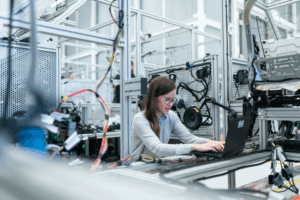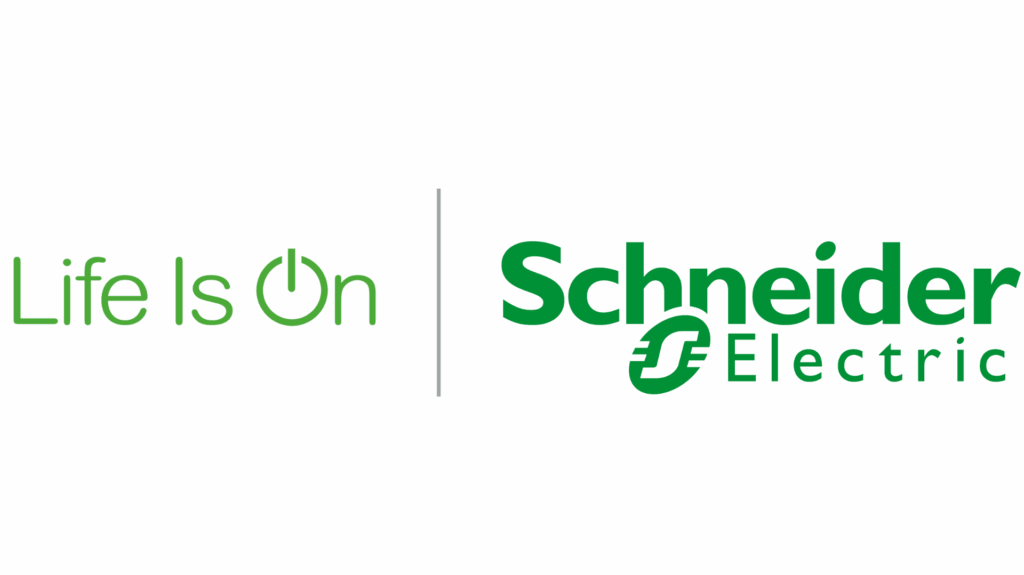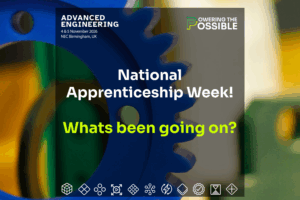
Thriving or Surviving? The Manufacturing Sector Health Check – February 2026
UK manufacturing is showing cautious signs of stabilisation, according to Enginuity’s latest “Thriving or Surviving?”

London 07/10/2025
Schneider Electric has been a pioneer in industrial automation. How are you showcasing your latest innovations at Advanced Engineering, and what key technologies should attendees look out for?
• At Advanced Engineering 2025, we’re going hands-on with EcoStruxure Automation Expert, our flagship software-centric control system. It’s all about flexibility, scalability, and moving beyond traditional hardware constraints.
• Visitors can explore a live vision recognition and cobot demo, showing how intelligent automation adapts dynamically to real-world conditions.
• We’re also featuring the Universal Automation Organisation, which is leading the shift to open, vendor-neutral automation—enabling faster innovation and true portability.
• A highlight is our collaboration with Warwick Manufacturing Group, showcasing a fully operational machine powered by EAE—a great example of academic and industrial synergy.
• We’re welcoming a guest SI partner who’ll share real-world experience of delivering EAE-powered systems to customers—offering valuable insight into how open automation is driving results.
• Integration is a key theme—so we’ll demonstrate how Aveva System Platform works seamlessly with EAE to deliver unified operations from control to enterprise level.
• And we’re introducing the Modicon M660, our next-gen motion controller, powered by EAE software and built for high-performance, scalable motion control.
• Look forward to meeting you on our stand – where you can see the future of automation in action, and hear directly from the people making it happen.
You’re closely involved with the Universal Automation Organisation. Can you explain what this initiative is about and why it’s so significant for the future of industrial automation?
• The Universal Automation Organisation is driving a major shift in how industrial systems are built and deployed. It’s about moving away from proprietary, locked-in solutions and toward open, portable automation software.
• At the heart of it is IEC 61499, a standard that allows automation applications to run on any compliant hardware—giving manufacturers true freedom of choice.
• This approach enables plug-and-produce automation, where systems are modular, reusable, and future-proof. It’s like bringing the app-store model to industrial control.
• The impact is huge: faster innovation, lower integration costs, and a more collaborative ecosystem. It’s not just a technical evolution—it’s a strategic one.
• We’ll be talking more about this at Advanced Engineering—come chat with us if you’re curious about the future of automation.
Sustainability and efficiency are top priorities in modern manufacturing. How is Schneider Electric leveraging automation to help companies meet these goals?
• Sustainability isn’t just a buzzword—it’s a business imperative. Our automation solutions help manufacturers optimize energy use, reduce emissions, and improve resource efficiency.
• With real-time data and analytics, companies can monitor their environmental impact and make smarter decisions to meet regulatory and ESG targets.
• We’re also enabling predictive maintenance and process optimization, which reduces waste, extends equipment life, and lowers operational costs.
• And because our platforms are digitally integrated, they support circular economy models—helping businesses design for reuse, recycling, and long-term sustainability.
• If you’re looking to make your operations greener and leaner, come see how we’re making it happen at the NEC.
Looking ahead, what trends or disruptions do you foresee shaping the next phase of industrial automation – and how is Schneider preparing for them?
• AI and machine learning are becoming central to industrial strategy—enabling systems to self-optimize, adapt, and even learn from data.
• Cybersecurity is now a top priority. As industrial systems become more connected, protecting data and ensuring operational resilience is critical.
• The rise of open standards and software-defined automation is reshaping how systems are designed, integrated, and maintained—making them more agile and future-proof.
• At Schneider, we’re investing in next-gen platforms, building strong ecosystem partnerships, and supporting customers through this transformation with tools that are ready for what’s next
• If you want to future-proof your operations, we can show you how at Advanced Engineering 2025.
What advice would you give to young professionals or career switchers who want to work in industrial automation?
• Stay curious—this is a fast-moving field, and those who keep learning will thrive.
• Get hands-on with digital tools and automation platforms. There are plenty of resources out there to start building your skills.
• Don’t underestimate the value of soft skills—problem-solving, teamwork, and communication are essential in modern industrial environments.
• And most importantly, know that open automation is opening doors. Whether you’re from IT, engineering, or a completely different background, there’s space for new ideas and fresh perspectives.
If you’re exploring a career in automation, come chat with us at Advanced Engineering—we’d love to help you get started.

UK manufacturing is showing cautious signs of stabilisation, according to Enginuity’s latest “Thriving or Surviving?”

Backed by over £210 million, a new UK Government Cyber Action Plan published today sets out how government will rise to meet the growing range of online threats

Backed by over £210 million, a new UK Government Cyber Action Plan published today sets out how government will rise to meet the growing range of online threats